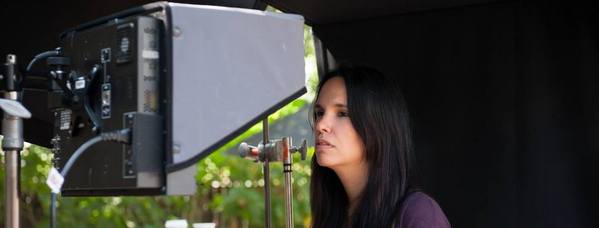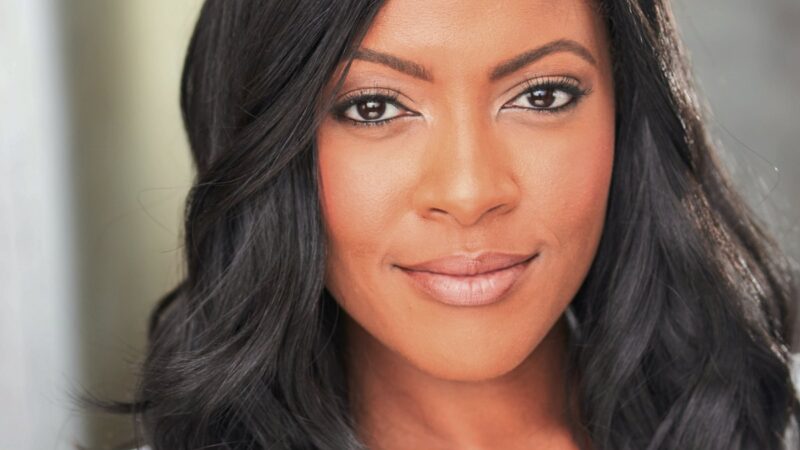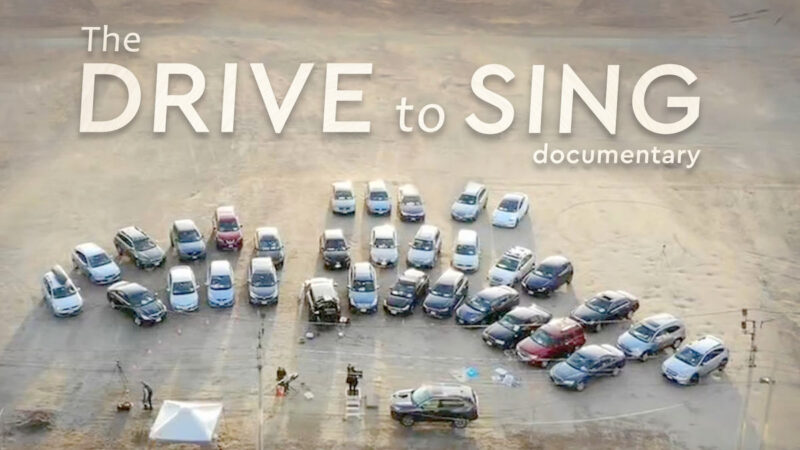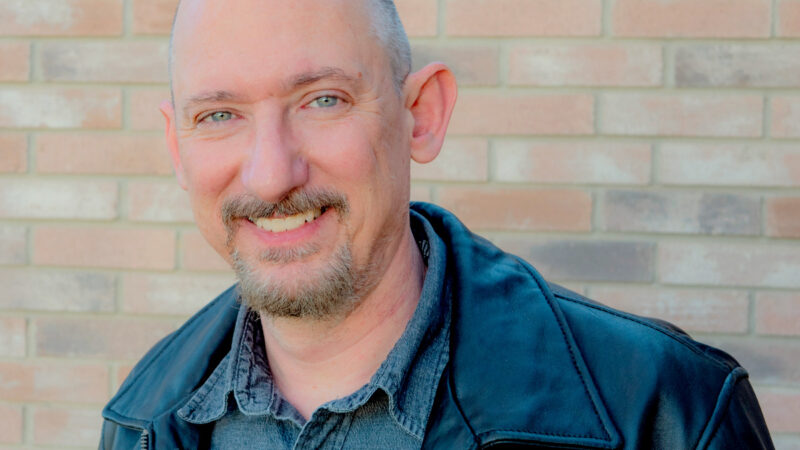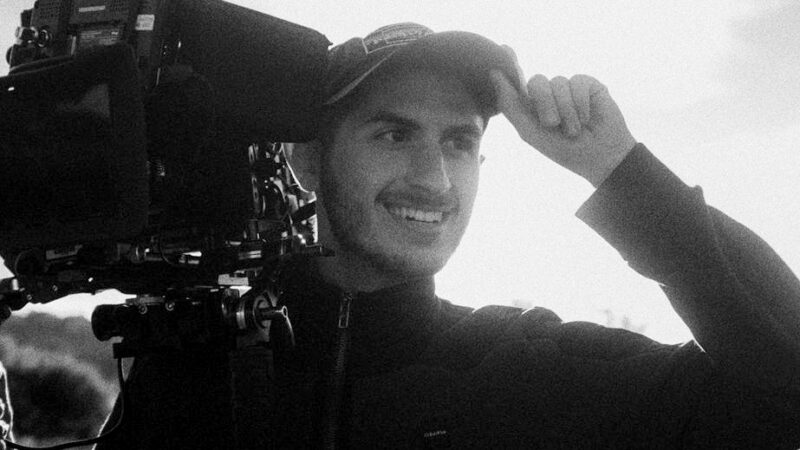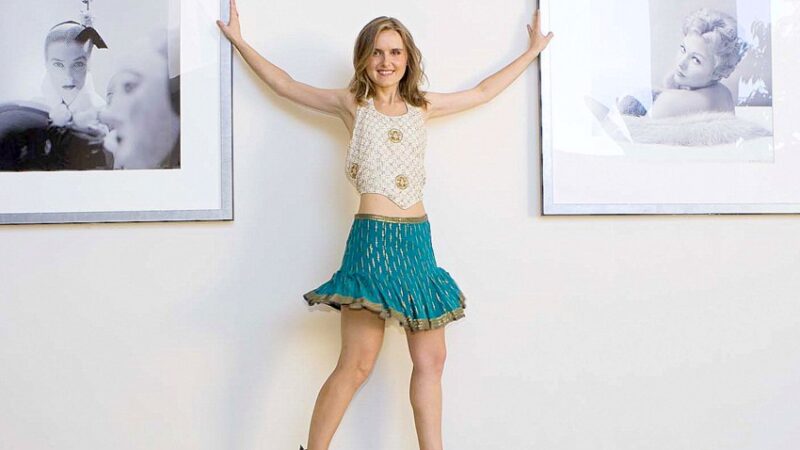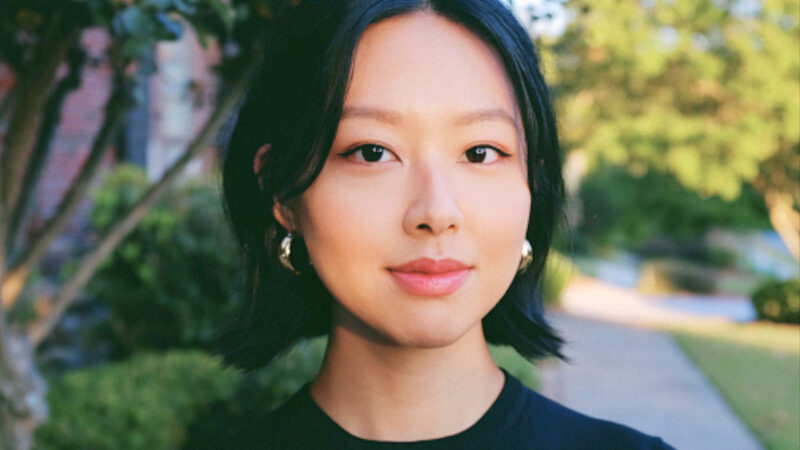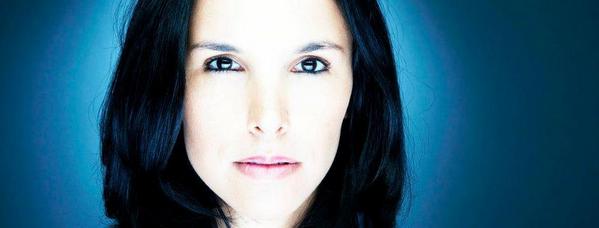
I was born and raised in Germany. My family still lives there and I try to get back at least once a year. I studied Psychology in Detroit and began taking acting classes in and outside of University. I met my husband on a film set in Michigan. We played a married couple, ironically. A couple years after that, we packed up our three dogs and moved to LA.
ITHACA – No Control (Official Video) https://t.co/K81RUrwuBY via @YouTube
— Sonja Isabella (@SonjaIsabella) November 29, 2015
How would you describe your work as a director
I think I am still discovering my style, but I’m drawn to darker stories, stories about human behavior and relationships. Then again, I also enjoy a great coming of age story, something you grow up with that sticks with you for life.
How did you get into directing
After moving to Los Angeles, my love for acting sort of subsided. I knew I wanted to work in this business and tell stories, but as an actor I never felt that I got to work on the stories that really meant something to me, so I decided to study directing instead. I went to UCLA and loved every minute of it. I feel completely comfortable and at home directing, which wasn’t something I could say about acting.
How do you choose a project to direct
If it’s a film, it has to be a subject that resonates with me. It has to be something I would want to watch myself. I wouldn’t be doing anyone a favor, trying to direct something I can’t identify with or really get behind. Of course, the quality of the writing is important and definitely the budget. When I pitch for music videos, I don’t have to love the music, but I have to find something in it that conjures up an image or a narrative, which I can get excited about.
What uniqueness do female directors bring to film, TV or cinema
Somehow this is a really difficult question for me to answer. I think the reason is that I never judged the creative process by what a man can achieve versus what a woman can achieve. I believe that a female director can bring the same talent, creativity, and competence to a project as a man. I think uniqueness is based on individuals, rather than on gender.
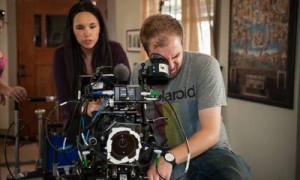 Do you take courses to increase you craft
Do you take courses to increase you craft
I graduated film school a little over a year ago, so that’s all still fresh. I have taken additional courses at UCLA on producing and the business side of the industry. I have also taken writing courses at UCLA and writing seminars here and there, for instance Gordy Hoffman’s script workshop here in LA.
What books do you read
I have to admit that I don’t read many books. Not that I don’t want to, I love reading, but I never find the time. The last book I read was “Wild” by Cheryl Strayed. I guess I do read a lot of industry books about directing, writing, etc. I just finished a book called “The 30-Second Storyteller” by Thomas Richter, because I was working on a commercial.
Why will you choose an actor, writer or producer. What do you look for
For me, the relationship with a producer or a writer is similar to that of my DP, 1st AD, or production designer. They all need to be confidently in charge of their own departments, they need to be reliable, responsive, and team players. It’s so important to surround yourself with people that understand you as a director but that aren’t afraid to speak up when something isn’t working. With actors, the ability to play the part is, of course, most important. However, attitude and ego can ruin a set and so I try to get to know them as people while I’m casting. I like having a conversation with an actor during an audition. I don’t believe it’s fair to call someone into the room, allow them to read just once and send them on their way.
When you are offered a job, what thing do you put in place to deliver a good job
The first question that should be addressed and answered honestly is whether the budget matches the project. As much as I might love the script, if the budget is nowhere near reality and I know I can’t give them what they had envisioned, then I have to be honest about that, no matter how much I would’ve wanted to do the work. After that, I contact everyone I want to be involved in the project and pray they’re available. Pre-production is the most important part of the process to me, so there are lots of meetings, especially with my DP.
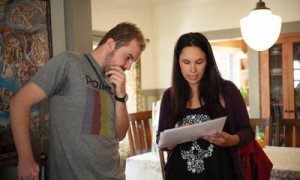 Briefly explain your latest work
Briefly explain your latest work
I directed a music video for LA-based rock band Ithaca. They asked me to shoot a video for them and I came up with three concepts for the song, ranging in degrees of difficulty and budget. They went with my favorite, which was naturally the most difficult one.
Explain key challenges on your last film
The budget for the music video was $6000, which is not a lot, but as I have come to learn recently, it is on the high end of low-budget music video making. The video was set around a 1930’s electric chair execution, which was financially challenging, but my Production Designer was able to pull off the perfect look for very little money. In order to save money, we shot in a new and rather inadequate studio. We required complete darkness, but the place had windows we blacked out the day before. On the first day of shooting, we would notice light coming through cracks in the walls, which had to be fixed in post. It all worked out, but it was definitely a lesson on what not to save money on.
What thing or situation helps you during a production
Pre-production! Being prepared is a great feeling to have when stepping on set. Something will always go wrong, but I like it to be something that I couldn’t have planned for in pre-production, like the plumbing breaking down, which has become a pattern on my sets. I guess I’ll prepare for that next time. Having a team to fall back on that takes initiative and has ideas and solutions is very comforting and at times a life-saver.
Explain a creative choice you took on set on a recent production
We shot the music video on a weekend that saw temperatures far above 100 degrees. The sound stage did not have air conditioning and the makeup crew was frantic, because of all the sweaty actors. Again, the video was set during an execution in the 30s, so I decided to just let them all sweat. It added a lot of authenticity to the feel of the environment the characters were in.
How do you advise female directors to find projects
I don’t know that there are different ways for female directors to find projects. I think it’s important to work as hard as you can, be confident and always know what you’re talking about. That way, if someone questions your competence based on your gender, you can prove them wrong. There are many organizations in Los Angeles that are geared toward promoting women in film and are definitely worth exploring.
How can female filmmakers finance projects
I believe the crowdfunding platforms are valid avenues worth exploring. Most filmmakers I know that have used Kickstarter or IndieGoGo have received most of their donations from friends and family. If you have some money to invest, it might pay to hire a crowdfunding and social media manager, someone that specializes in running these campaigns for you. Once you’re talking larger sums of money, I believe your best bet is to educate yourself on the business side of the entertainment industry. It’s the side nobody likes to deal with, because it’s so far removed from the fun that is making the movie. The reality is, if you want to be a filmmaker for a living, you need to get comfortable with this part of it. When you’re ready to approach investors, have the best script possible, a solid business plan, attach the best people you can and pitch your butt off.
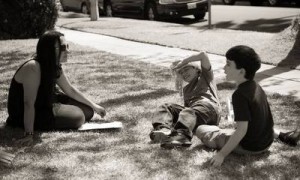 What do you want from an actor in production
What do you want from an actor in production
I want my actors to be as professional as everyone else. On time, prepared, and courteous with everyone on set.
How do you prefer to work with a producer during a production
I think it’s important to work with Producers that understand their job and know how to deal with issues independently when possible, or in tandem with the 1st AD. I’m always open to talk through everything with anybody, but prefer to keep it to issues that concern the creative process while actively shooting.
What do you think a female director can do to get into the film industry
Directing is still not only a male-dominated field, but in large part a white boys club. I do believe we are starting to see some changes to that, however small. A lot of awareness has been created over the past couple of years, as to the lack of women in the industry. The DGA recently came out with a statement, shaming productions for not being diverse enough. I think women need to be prepared and be ready to hold their own against their male competitors when given the opportunity. Female directors should also create their own opportunities whenever possible, by directing small projects that enhance their reel and that can get them attention at festivals. I think it’s important to be persistent and never feel intimidated by the process.
Who is your favorite director
I don’t have one favorite Director. I admire different people for different things. David Fincher is great. He has the ability to make the most messed-up story look beautiful. I admire Steven Spielberg for his grand visions and his ability to create films (as director and producer) that have shaped people’s childhoods for generations. I recently saw the film Legend, starring Tom Hardy, directed by Brian Helgeland. It’s one of the best films I’ve seen in a long time. The story is not only incredibly compelling and visually beautiful, but he managed to seamlessly marry a lot of humor with a lot of violence. It’s still early but for me, Mr. Helgeland has set the bar high for this upcoming award season.
What advice would you give to directors around the world
Don’t think of yourself as a female director, you’re a director. Why put yourself in a box.
Briefly write about your career
I have not discovered anyone but was fortunate enough to work with professional actor Craig Horner on Ithaca’s music video. It’s only been a year since I finished at UCLA. I have since had a short film called Mighty Benjamin Little that is still on the festival circuit and recently received an honorary mention for best writing by the Los
Angeles Independent Film Review. I shot a commercial for a Los Angeles Art Business and I just recently finished the above mentioned music video. I am currently in discussion to direct another music video and am pitching on many others. I’m also developing several film projects, a short I will shoot soon and a couple of features I am planning to package. I still work on other productions in various capacities, in order to learn as much as I can about all aspects of the business.
INTERVIEWS
more interviews

